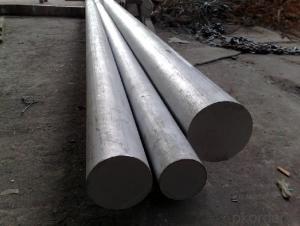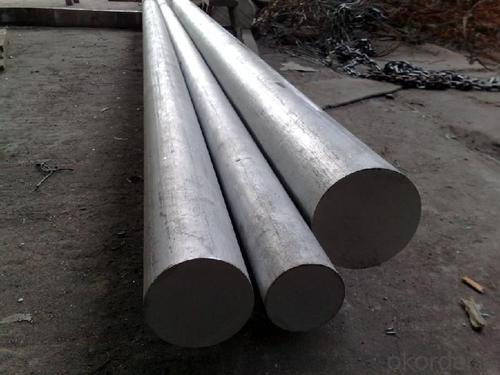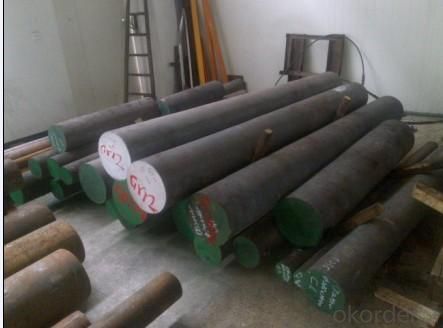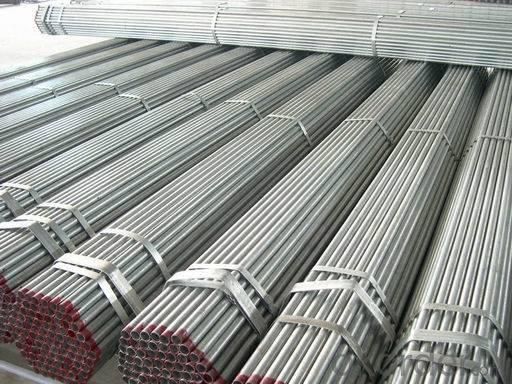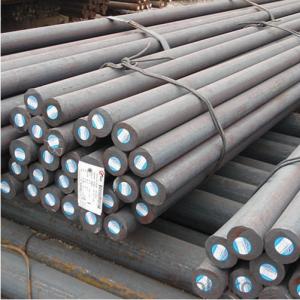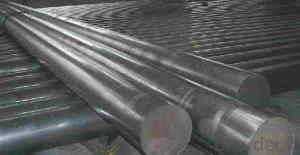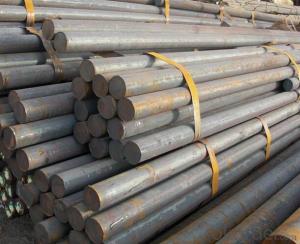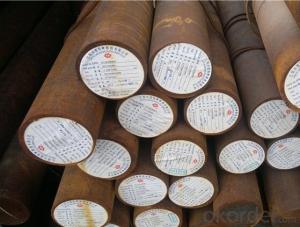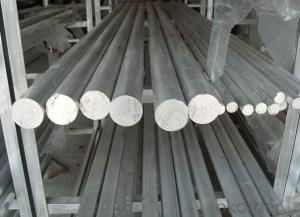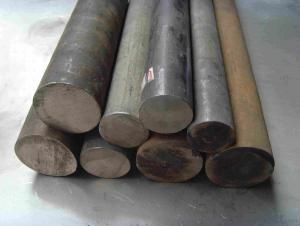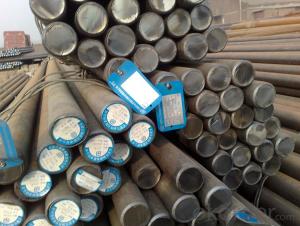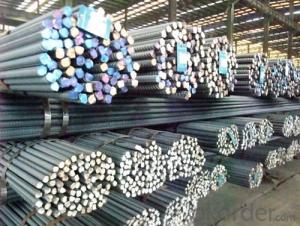Alloy Tool Steel 1.2510/o1/9CrWMn Special Steel
- Loading Port:
- China main port
- Payment Terms:
- TT OR LC
- Min Order Qty:
- 30 m.t.
- Supply Capability:
- 10000 m.t./month
OKorder Service Pledge
OKorder Financial Service
You Might Also Like
Specification
Alloy Tool Steel 1.2510/o1/9CrWMn Special Steel
Product Information:
1.Size:
Flat: 12-120*205-610mm*2000-5000mm
Rould:16-150*2000-5000mm
2. Delivery condition:
Hot rolled or foged,annealed ,EAF or ESR,black or milled surfaceSoften annealed: ≤ 255HB
3.Application:
Cold work die steel Widely applied in fabrication of blanking die, punching die, bending die and bernishing die with the thickness of not more than 8mm.
Also widely applied in fabrication of gauges, measuring tools, woodwork cutters and lathe thimble, etc;
Also widely applied in fabrication of guiding bush, thimble, screwing dies and taps, etc.
4.Feature:
Vacuum refining, with pure steel quality
Spheroidal annealing to soften the tissue for easy cutting and processing
Very high hardness in case of quenching
Very good size stability aftertempering
Product Overviews:
| Product Name | Typical Grades | Diameter(mm) | Standard adopted |
| Carbon Steel | 20 (1020/S20C/C22) | Ø16-Ø300 | GB/SAE/JIS/DIN |
| 40 (1040/S40C/C40) | |||
| 45 (1045/S45C/C45) | |||
| Bearing Steel | GCr9 (51100/SUJ1) | Ø12-Ø250 | |
| GCr15 (52100/SUJ2/100Gr6) | |||
| GCr9SiMn (A485-Gr.1/SUJ3) | |||
| Cr-Mo Steel | 20Cr (5120/SCr420H/20Cr4) | Ø12-Ø250 | |
| 40Cr (5140/SCr440/41Cr4) | |||
| 42CrMo(4140/SCM440/42CrMo4) | |||
| Gear Steel | 20CrNiMo | Ø16-Ø600 | |
| 20CrMn(5115/SMnC420/20MnCr5) | |||
| 20CrNiMo(8620/SNCM220/20CrMiMo2) |
Product Show:

Our Advantages:
· Industry experience over 20 years.
· Shipment of goods -More than 70 countries worldwide.
· The most convenient transport and prompt delivery.
· Competitive price with best service.
· High technical production line with top quality products.
· High reputation based on best quality products.
With our experienced, enthusiastic and dynamic staffs, we assure to bring you the products with best quality, reasonable prices and good after-sales services under the motto: Friends First, Business After.
Communication, Experience, Expertise and Best efforts are our Promises to you.
- Q: Can special steel be used in the production of knives and blades?
- Yes, special steel can be used in the production of knives and blades. Special steels, such as high carbon stainless steel or Damascus steel, offer superior durability, sharpness, and corrosion resistance, making them ideal for producing high-quality knives and blades.
- Q: How does special steel ensure product reliability?
- Special steel ensures product reliability through its unique properties and manufacturing processes. Special steel is designed to have exceptional strength, durability, and resistance to corrosion, wear, and fatigue. These enhanced properties make it suitable for various critical applications where reliability is paramount, such as in automotive, aerospace, energy, and infrastructure industries. Special steel undergoes rigorous quality control measures during its production to ensure consistency and adherence to specific standards. This helps in minimizing variations and defects, ensuring that the final product meets the required specifications and performs reliably under challenging conditions. Additionally, special steel's ability to be tailored and customized enables manufacturers to create products that are precisely engineered to withstand specific operating environments, further enhancing their reliability.
- Q: How does special steel contribute to the durability of products?
- Special steel contributes to the durability of products due to its unique properties and composition. It is designed to have increased strength, hardness, and resistance to wear and corrosion, making it suitable for demanding applications. Special steel enhances the structural integrity and longevity of products, ensuring they can withstand heavy loads, extreme temperatures, and harsh environments without compromising performance or safety.
- Q: What are the different machining methods for special steel?
- There are several machining methods for special steel, including turning, milling, drilling, grinding, and broaching. Each method is chosen based on the specific requirements of the project, such as the desired shape, surface finish, and dimensional accuracy. These machining methods allow for the precise shaping and finishing of special steel to meet the desired specifications and applications.
- Q: What are the different types of corrosion-resistant steel?
- There are several different types of corrosion-resistant steel, including stainless steel, galvanized steel, weathering steel, and nickel alloy steel.
- Q: How does special steel perform in high-pressure hydrogen environments?
- Special steel performs well in high-pressure hydrogen environments due to its high strength, corrosion resistance, and ability to withstand hydrogen embrittlement. It is designed to handle the extreme conditions associated with hydrogen, such as high temperatures and pressures, without compromising its structural integrity. Additionally, special steel alloys are often used in hydrogen storage systems, pipelines, and fuel cell components, demonstrating their reliability and effectiveness in such environments.
- Q: What are the applications of special steel in the power generation manufacturing process?
- Special steel has various applications in the power generation manufacturing process. It is commonly used in the construction of turbines, boilers, and other critical components. The high strength and heat-resistant properties of special steel make it suitable for withstanding extreme conditions and ensuring efficiency and reliability in power generation. Additionally, special steel is used in the manufacturing of transmission lines, transformers, and electrical equipment, as it provides excellent conductivity and resistance to corrosion. Overall, special steel plays a crucial role in enhancing the performance and longevity of power generation systems.
- Q: What are the properties of high-speed tool steel?
- High-speed tool steel possesses several important properties, including exceptional hardness, wear resistance, and heat resistance. It can maintain its hardness even at elevated temperatures, enabling it to withstand high-speed machining operations without losing its cutting edge. Additionally, high-speed tool steel exhibits excellent toughness and durability, allowing it to withstand heavy loads and resist chipping or breaking. Its high wear resistance makes it suitable for prolonged usage and reduces the need for frequent tool replacements.
- Q: How is special steel graded?
- Different factors, including its chemical composition, mechanical properties, and intended application, are taken into account when grading special steel. The grading system provides a standardized classification that aids in the identification and selection of the appropriate steel type for specific purposes. One commonly used method of grading special steel involves the use of alphanumeric codes. These codes consist of a combination of letters and numbers that represent specific characteristics of the steel. For instance, the American Iron and Steel Institute (AISI) employs a four-digit numbering system to grade various steel alloys. The first digit signifies the main alloying element, such as carbon or manganese, while the subsequent digits provide additional information regarding the steel's composition and properties. In addition to alphanumeric codes, special steel can also be graded based on its mechanical properties. This entails testing the steel's strength, hardness, toughness, and other performance indicators. The results of these tests determine the steel's specific grade, which helps users assess its suitability for particular applications. International standards organizations like ASTM International and the International Organization for Standardization (ISO) provide guidelines and specifications for grading special steel based on these mechanical properties. Furthermore, the intended application of the special steel also significantly influences its grading. Industries such as aerospace or automotive have specific material requirements. Therefore, special steel intended for these sectors is graded based on its ability to meet those requirements, such as corrosion resistance, heat resistance, or wear resistance. Special steel grades can also be categorized based on their ability to withstand extreme conditions or fulfill specific functions, such as tool steels for cutting or forming operations. Overall, the grading of special steel involves considering its chemical composition, mechanical properties, and intended application. By utilizing standardized grading systems and specifications, manufacturers, engineers, and other users can easily identify and select the most suitable type of special steel for their specific needs.
- Q: What are the requirements for special steel used in marine applications?
- Special steel used in marine applications must meet certain requirements to ensure its durability and performance in the harsh marine environment. These requirements typically include high corrosion resistance to withstand exposure to saltwater, excellent strength and toughness to withstand extreme forces and impacts, good weldability for ease of fabrication and maintenance, and low magnetic permeability to avoid interference with electronic equipment. Additionally, the steel must be able to withstand fluctuating temperatures and be resistant to fatigue and stress corrosion cracking to ensure long-term reliability in marine applications.
Send your message to us
Alloy Tool Steel 1.2510/o1/9CrWMn Special Steel
- Loading Port:
- China main port
- Payment Terms:
- TT OR LC
- Min Order Qty:
- 30 m.t.
- Supply Capability:
- 10000 m.t./month
OKorder Service Pledge
OKorder Financial Service
Similar products
Hot products
Hot Searches
Related keywords
